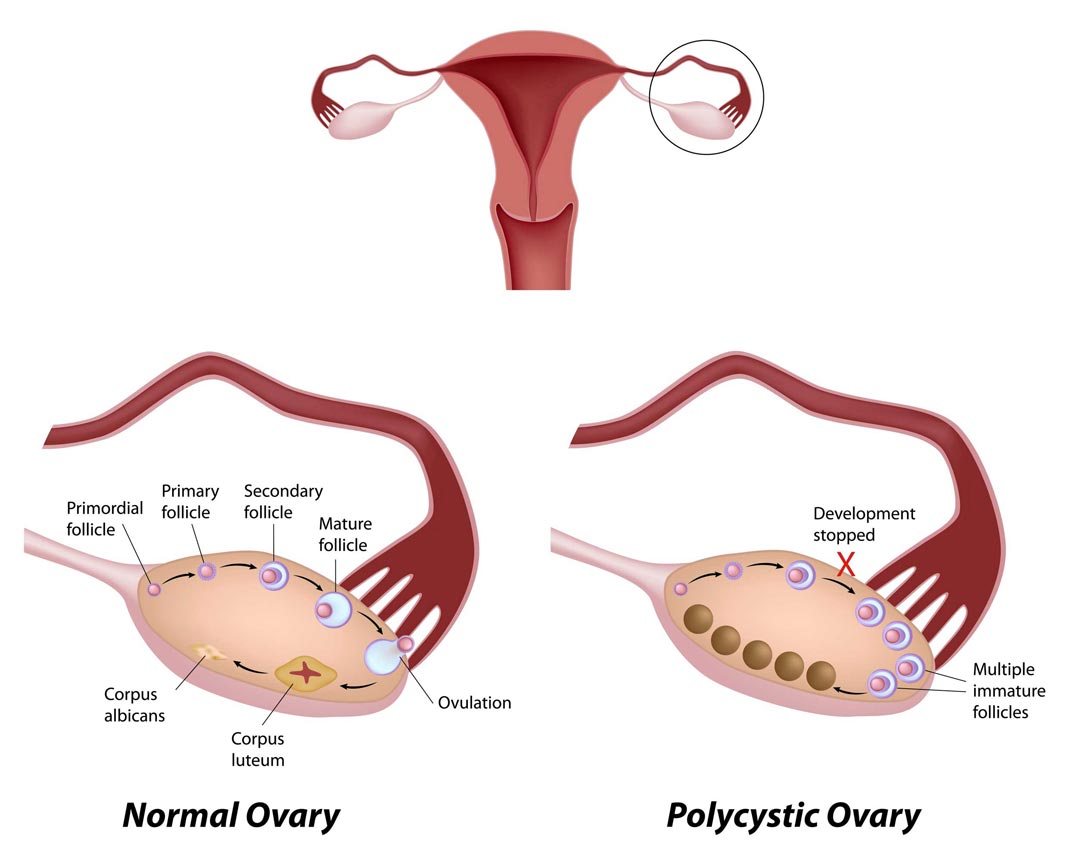Polycystic Ovary Syndrome and Female Androgenetic Hair Loss

Hair loss due to excess androgens in women is most often due to polycystic ovary syndrome. PCOS is an endocrine disorder that occurs in 5-10% of all adolescent girls and women. Diagnosis is based on the presence of at least 2 of 3 primary symptoms: 22, 86, 102, 105, 359
- Evidence of excess androgen hormones (such as hirsutism, acne, high serum levels of androgen or luteinizing hormones
- Irregular menstrual cycles
- Imaging evidence of multiple cysts in the ovaries
Women with PCOS often show symptoms of metabolic syndrome (e.g., obesity and diabetes). Metabolic syndrome and diabetes by itself have also been linked to hair loss. 102

How Is PCOS Treated?
Treatments for PCOS involve correcting hormonal imbalances that cause excess androgens, some of which mirror treatments used for female pattern hair loss in women who don't have PCOS: 15, 30, 102, 106, 107, 360
- Combination oral contraceptive pill. The estrogens in oral birth control pills reduce ovarian production of testosterone. They also increase production of sex hormone binding globulin (SHBG), which binds free testosterone before it can convert to DHT and attach to hair follicles.
- Gonadotropin releasing hormone. GnRH suppresses luteinizing hormones. When used in combination with birth control pills and cyproterone acetate it also improved insulin sensitivity
- GnRH agonists. These drugs (e.g., metformin) stimulate production of GnRH.
- Spironolactone. Most commonly used anti-androgen, it blocks androgen hormones from binding to receptors (such as those in hair follicles).
- Weight management. Losing as little as 2-7% of weight reduces androgen levels
- Herbal options. Consuming spearmint herbal tea twice a day was shown in a one month randomized, controlled clinical trial to significantly reduce free and total testosterone levels. In another clinical trial, patients were randomly assigned to take 370 mg of chamomile supplements 3 times a day for 3 months or a placebo. Those who took the herbal supplement showed a significant decrease in total testosterone levels.
Antioxidant supplements may also be beneficial. Research shows that oxidative stress in PCOS is directly linked to excess androgen secretion. 60
How Is Hair Loss Caused by PCOS Treated?
Dermatologists have successfully treated hair loss in women with PCOS with oral contraceptives, anti-androgens, and combination treatment regimens of 5-mg/day of finasteride and the hair growth promoter 5% topical minoxidil (by prescription). 30


